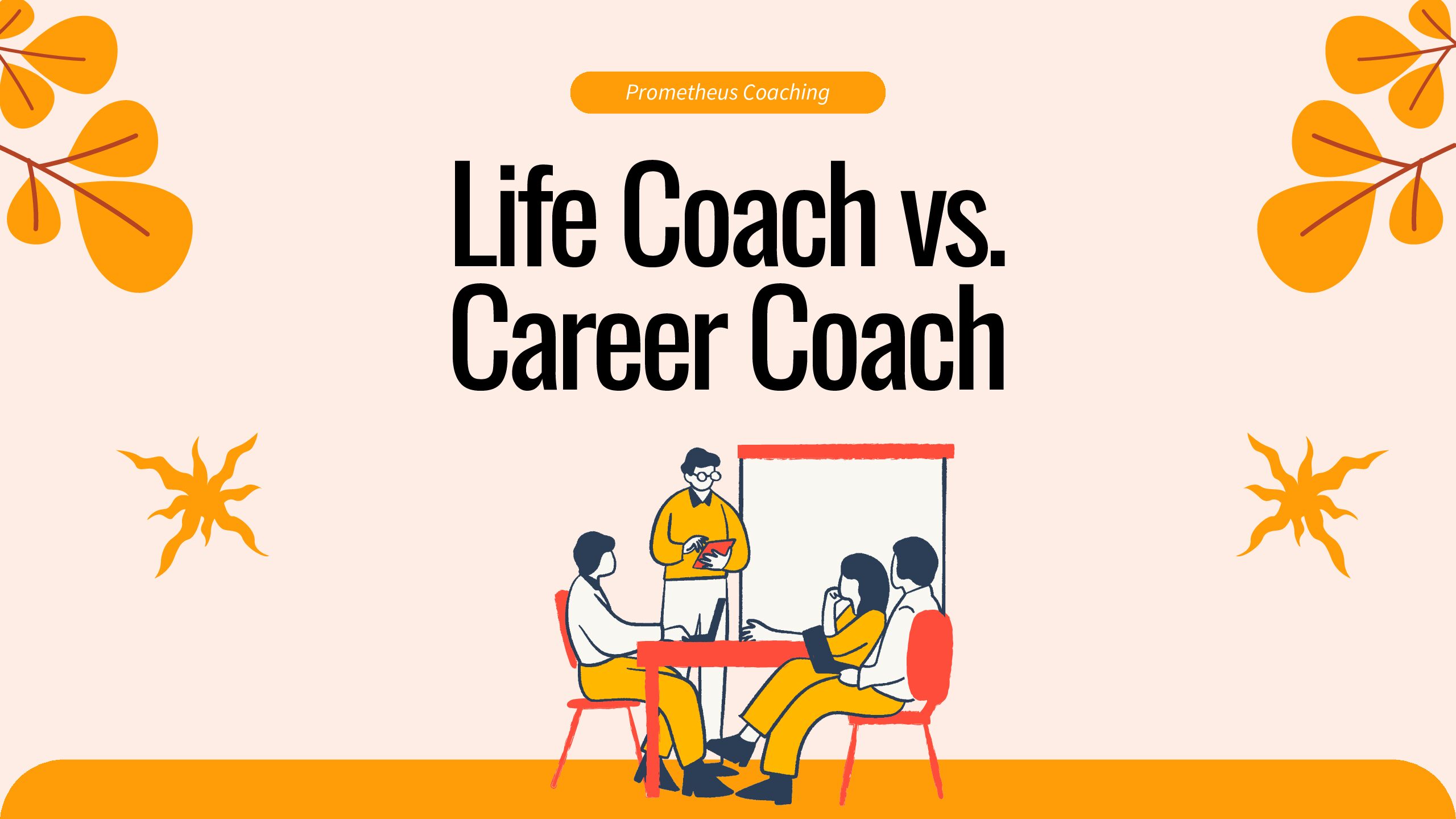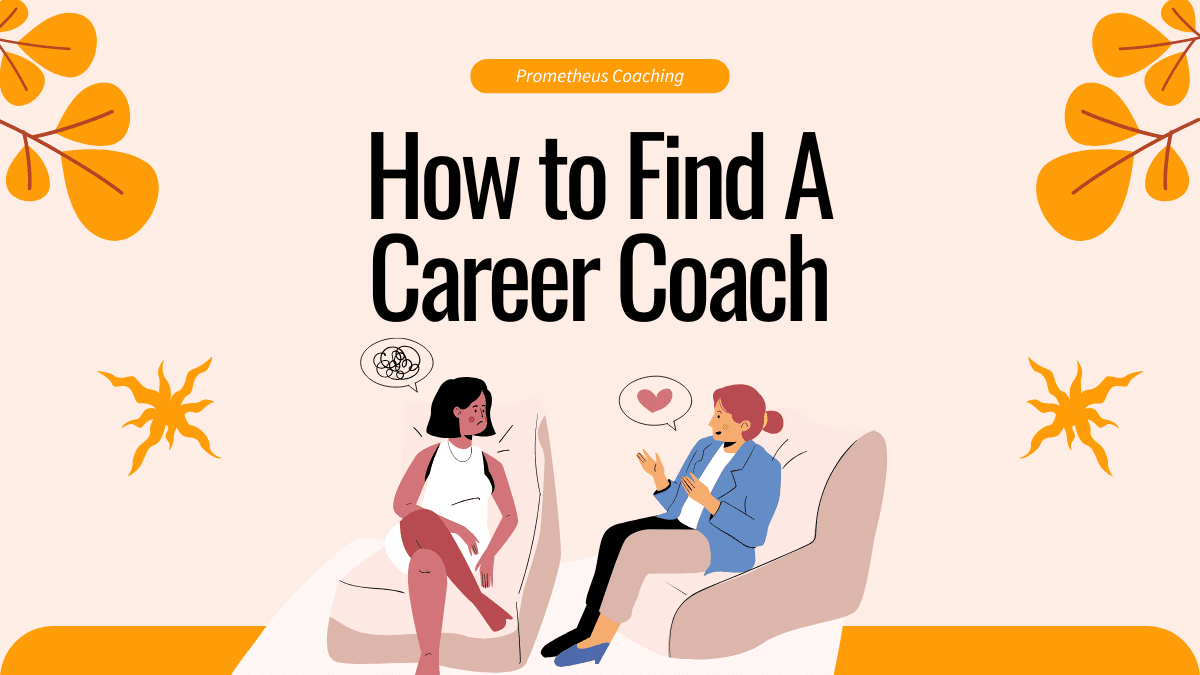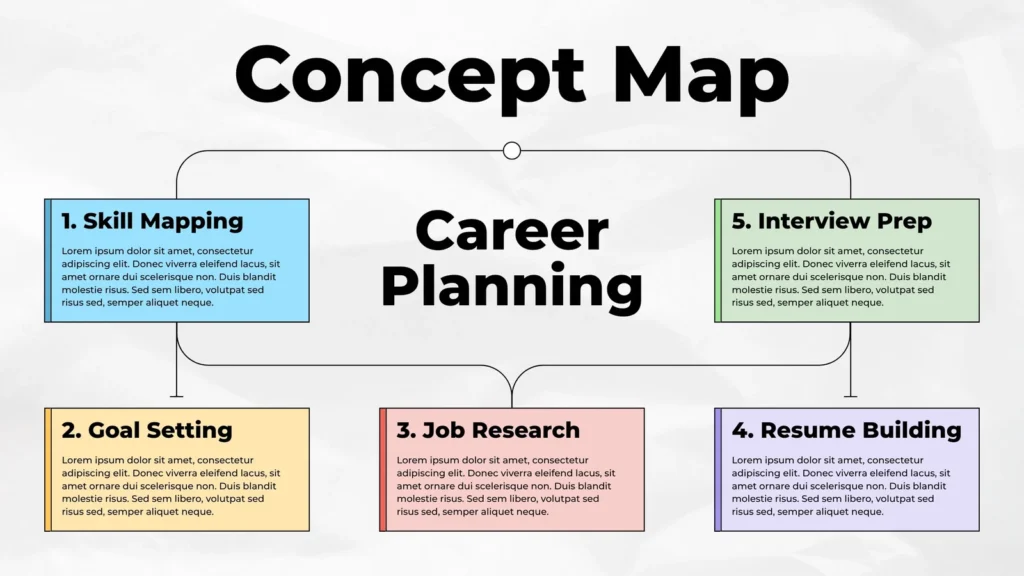Finding the right career or life coach can feel overwhelming if you are not sure what each type actually does; understanding what’s the difference can help you choose the right career path.
- A life coach A life coach works on the bigger picture of your life, helping you navigate career transitions and personal growth. Mindset, habits, confidence, relationships, personal growth.
- A career coach helps you move forward professionally. Landing a new role, improving your skills, making a career change, building leadership abilities.
Both can be valuable.
Both can create change.
But they are not the same thing…
If you choose a career coach who is not aligned with your real goals, you risk wasting months and money on the wrong focus in your client’s career. Get it right, and you can make faster progress than you thought possible.
In this guide, we will break down what each coach does, how they work, the differences between them, and how to decide which one you should hire.
Understanding the Types of Coaches
Not all coaches provide the same work or get the same results; some may specialize in career coaching while others in life coaching. The term “coach” is broad, and that’s where confusion starts. Some coaches focus on your personal life, while others are dedicated to your professional development. Others focus on your professional path. Some coaches blend career coaching and life coaching to address both personal and professional development. The key is knowing what you actually need help with before you hire one.
The most common types you will come across are life coaches and career coaches, often certified by the International Coaching Federation, who provide specialized coaching programs.
Both can be valuable, but their focus and methods are different.
What is a Life Coach?
A life coach helps you make changes in your personal life so you can live with more clarity, purpose, and confidence.
This could mean:
- Improving your habits
- Setting and achieving personal goals
- Building self-belief,
- Improving relationships
- Finding more balance in your day-to-day life
A life coach is not a therapist.
They do not diagnose or treat mental health issues, focusing instead on actionable steps for your career development. Instead, they help you move forward from where you are right now toward where you want to be.
What is a Career Coach?
A career coach works specifically on your professional life. They can help you:
- Land a new job
- Prepare for interviews
- Change careers
- Improve workplace performance
- Map out a long-term career plan with the help of a coaching session.
They may also work with you on leadership development, communication skills, and strategies to get promoted in your career or life.
Career coaches are focused on helping you achieve measurable results in your career through a structured coaching program, often with clear action plans and timelines.
Difference Between a Life Coach and a Career Coach
The difference comes down to focus.
A life coach looks at your whole life and helps you improve the personal side so you can feel more fulfilled overall, which in turn can enhance your career opportunities.
A career coach focuses on your professional life and helps you achieve specific career goals.
While there can be overlap, the type of coach you choose should match your current priorities. If your main challenges are personal, start with a life coach to help you become a life coach. If your main challenges are professional, start with a career coach.
Determining Your Needs
Before you hire a life or career coach, you need to be clear about what you want to change or achieve in your professional goals.
Without that clarity, it’s easy to choose the wrong type of coach and end up working on areas that aren’t your top priority. Start by looking at your current challenges, your short-term goals, and your long-term vision.
- Are the obstacles you’re facing mostly personal or mostly professional; understanding what’s the difference can guide your choice?
- Do they impact your life as a whole or are they limited to your career?
Assessing Your Goals: Life vs Career
Here’s the breakdown:
- Life goals might include improving your confidence, building healthier habits, finding work-life balance, or improving relationships.
- Career goals might include getting a promotion, changing industries, developing leadership skills, or improving your performance at work.
If your goals cross over, for instance, building confidence to speak up in meetings, you’ll need to decide which side of the challenge is bigger for you in your career or life.
Is it the personal confidence issue, or is it the professional skill development?
How to Choose the Right Coach for You
Here’s how to choose the right coach for you in your career or life.
- Write down your top 3 challenges right now.
- Decide whether each one is personal or professional.
- Look at where you want to be in the next 12 months in your career and life.
- Choose the coach type whose core focus matches those goals.
If most of your challenges are personal, go with a life coach. If they are career-specific, go with a career coach.
Signs You Need a Life Coach or a Career Coach
Here are signs you need a life coach or a career coach:
You may need a life coach if:
- You feel stuck in life without knowing exactly why
- You lack motivation or struggle with follow-through
- You want better habits, routines, and personal discipline
- You want to feel more confident and fulfilled
You may need a career coach if:
- You want to choose a career or make a new job change.
- You feel stuck in your current role with no clear path forward
- You want to improve leadership or communication skills
- You are preparing for interviews or big promotions
The Coaching Process
Working with a coach is not about someone giving you all the answers. It’s a structured process where the coach guides you to find clarity, set goals, and take consistent action.
The exact process depends on the type of coach you choose, but most will involve:
- An initial consultation
- A series of regular sessions
- Actionable steps between meetings can significantly enhance your career assessments.
What to Expect from Life Coaching
Life coaching often starts with looking at your current life as a whole, including your career and life aspirations.
Your coach will help you identify what’s working, what’s not, and where you want to be. From there, you’ll set personal goals and create a plan to reach them. A life coach may help you:
- Build confidence and self-belief
- Improve time management and daily routines
- Strengthen relationships and communication
- Break unhelpful habits and replace them with better ones
Sessions may include open conversations, goal-setting exercises, and accountability check-ins. Progress is measured by how you feel, the habits you build, and the changes you see in your day-to-day life.
What to Expect from Career Coaching
Career coaching starts with understanding your professional history, your current role, and your career ambitions. Your coach will help you set specific, measurable goals and create a plan to achieve them.
A career coach may help you:
- Prepare for interviews and negotiations
- Improve your resume, LinkedIn profile, and personal branding
- Develop leadership and workplace skills
- Navigate career changes or promotions
Sessions often focus on strategies, action plans, and measurable results. Progress is tracked through tangible outcomes like job offers, promotions, or improved performance reviews.
Coaching Techniques and Approaches
Both life and career coaches use a variety of approaches depending on your needs. These can include:
- Goal-setting frameworks to clarify what you want and how to get there in your professional development.
- Accountability systems to keep you on track
- Exercises to improve self-awareness and decision-making
- Role-playing for interviews or challenging conversations
- Feedback and reflection to help you grow faster
Good coaches adapt their methods to you, not the other way around. The approach should feel relevant to your goals and push you forward without overwhelming you.
Benefits of Coaching
Coaching helps you get clear on your goals, stay accountable, and take consistent action towards your right career.
Whether you work with a life coach or a career coach, you get an outside perspective, practical strategies, and ongoing support to help you move forward faster.
Benefits of Life Coaching
Life coaching can help you:
- Build confidence and self-esteem
- Create healthier habits and routines
- Improve communication and relationships
- Gain clarity about your values and priorities
- Overcome fears and mental roadblocks
- Increase motivation and follow-through in your professional development.
The results of career coaching often extend beyond the original goals you came in with, providing unexpected career opportunities. A better mindset, more discipline, and stronger self-belief can influence every part of your life.
Benefits of Career Coaching
Career coaching can help you:
- Identify your strengths and career direction to align with your right career.
- Land new roles or make career changes with a clear plan
- Improve your resume, LinkedIn profile, and interview skills
- Develop leadership and workplace effectiveness
- Negotiate better salaries or promotions
- Expand your professional network and opportunities
The focus is on measurable, professional results while building the skills that will help you long-term.
How Coaching Can Impact Your Career Path
Even if you start with personal goals, improvements in your mindset, confidence, and discipline can lead to better performance at work. The same goes the other way, if you start with career goals, you may see positive changes in your personal life as a result.
Coaching can open new opportunities you hadn’t considered, help clients prepare for bigger roles, and give you the tools to handle challenges with confidence.
The right coach can accelerate your growth and help you achieve goals that might have taken years on your own.
Career Counseling and Coaching
Career counseling and career coaching are related but not the same, particularly in the context of career guidance. Both can help you make better career decisions, but their methods and focus are different.
Difference Between a Career Counselor and a Career Coach
Here’s the difference between a career counselor and a career coach:
- A career counselor typically focuses on assessment and guidance. They may use personality tests, skills assessments, and career interest inventories to help you understand what types of roles or industries might fit you best. Career counseling often happens before a job search begins.
- A career coach focuses on action and results. They help you set career goals, create a job search strategy, improve your professional branding, and prepare for interviews or promotions. Coaching is more hands-on and future-focused.
Think of counseling as helping you decide what direction to take, and coaching as helping you make it happen.
When to Seek Career Counseling
Career counseling may be the right choice if you:
- Feel lost about what type of work you want to do
- Are entering the workforce for the first time
- Are considering a major career change but aren’t sure where to start
- Want a professional assessment of your skills and interests
Counseling gives you the foundation and clarity you need before moving into action with a coach.
Integrating Life Coaching with Career Counseling
It’s possible to combine these approaches for even stronger results. For example, you might start with career counseling to figure out your ideal direction.
Then, you could work with a life coach to build the mindset, habits, and confidence to follow that path.
This combination works well if your career goals are tied to personal growth area, like improving confidence, building resilience, or creating better work-life balance. By integrating life coaching with career counseling, you address both the “what” and the “how” of making your next big move.
Ready to Find the Right Coach for You?
Whether you need a life coach to help you create balance and build confidence, or a career coach to help you land your next role and advance professionally, the right coaching can change your life.
We offer both life coaching and career coaching, so you don’t have to guess which one is best. We’ll help you get clear on your goals and match you with the approach that will get you results faster.
With 100+ lives changed in Chicago and around the globe, we are confident we can change yours, too!
Book your free consultation today and take the first step toward the life and career you dream of.


